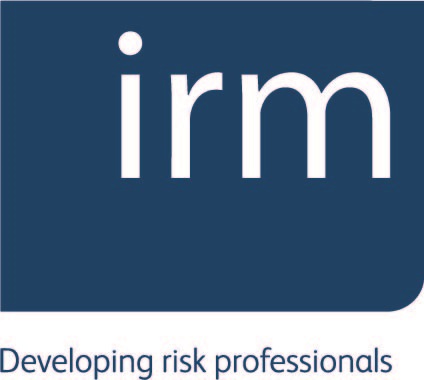Considerations for business and risk managers during the Coronavirus/CoVid19 outbreak
The latest position in the UK in respect of Covid-19 can be found here: https://www.gov.uk/coronavirus.
The situation is changing rapidly and we will continue to monitor the situation closely. Alongside the obvious risks to human health, we are also seeing serious disruption-related impacts on organisations that are arising from travel and opening restrictions, event cancellations, workforce issues, supply chain disruptions, financial and market volatility and cash flow problems.
Those who have studied or trained with us will be familiar with the principles, tools and techniques of risk management, business continuity and crisis response that can be deployed to help organisations prepare and respond to situations like this. Hopefully organisations will have business continuity plans, and these will form the basis of a response, but it is quite likely that they did not foresee a situation as widespread, complex and long-lasting as we appear to be facing. And we will also see how well theoretical plans work when faced with real-life situations.
Every organisation will have its own sectoral and individual context. Organisations must also respond in a proportionate manner. But based on advice from some of our senior members, here is our checklist of what organisations should be thinking about:
Risk response
- Review key objectives and priorities in the light of current information
- Balance ‘business as usual’ against new demands and changing priorities
- Ensure you have undertaken risk assessment(s) in respect to the impact of Covid-19 on your key objectives and prepare and implement response plans
- Stress test various scenarios
- Assess whether you have sufficient expertise available, in risk management, supply chain risk management, subject matter and communications
- Check your insurance coverages and talk to your broker
- Be alert to other risks materialising e.g. cyber attacks
- Be aware of possible opportunities and opportunities for research and learning e.g. improving processes
Crisis management
- Establish an incident management team. Decide what authority it has. What if the members become ill?
- Ask all departments to review and refresh their continuity plans as necessary
- Consider any value statements your organisation may have that should guide your response and communications
Communications
- Monitor official advice, beware fake news
- Map out who your internal and external key stakeholders are and have a plan for how and how often you will communicate with them
- Think about how you will keep the message consistent, while understanding that policies may have to change rapidly
- Keep your staff informed without being alarmist
- Ensure leadership teams are briefed and kept up to date
- Review public announcements (website etc) regularly
Looking after your people
- Conduct and regularly review risk assessments to ensure a safe place of work for employees and contractors
- Follow government health and travel advice
- Ensure good hygiene practice and appropriate personal protective equipment where necessary
- Ensure you know about staff that are at higher risk because of pre-existing health conditions and take action accordingly
- Make and implement plans to reduce travel and facilitate working from home where possible
- Give employees clear guidance on when they should attend work and when they should stay away
- Review travel advice on a regular basis
- Risk assess meetings and events
- Review impact of incentive elements of remuneration packages
Supply chain issues
- Confirm business continuity plans of key suppliers
- Ensure you have thoroughly mapped your supply chain
- Take this further and look at your wider extended enterprise
- Talk to your suppliers and to your customers to look at options and alternatives
- Understand how your contracts work, especially force majeure provisions
- Ensure that you maintain safety and traceability standards if alternative suppliers are used
- Ensure you have appropriate legal advice
Regulatory, competition law and reporting considerations
- Ensure any home working arrangements maintain standards of data protection and IT security (e.g. beware Alexa or Siri listening into your videoconference)
- Consider anti-trust implications if you think about collaboration with other businesses to maintain supplies
- Be aware that action may be taken by competition authorities in respect of pricing and unnecessary stockpiling
- Consider any impact on company AGMs and whether an online meeting is an option
- Consider how the impact of Covid-19 will be reported in compliance with corporate governance codes, e.g. when reporting on principal risks and uncertainties
Cashflow and liquidity
- Use scenario analysis to examine and stress test liquidity and prepare response plans
- Be aware of any government assistance e.g. from the tax authorities
Additional reading and resources:
- Results of IRM Survey - Covid-19 Pandemic Global Risk Management Response
- IRM Covid-19 Global Risk Management Response report – views from IRM’s groups around the world
- The Winton Centre for Risk and Evidence Communication - IRM Honorary Fellow Professor David Spiegelhalter leads work on understanding the Covid-19 Risk
- Members of the IRM community have been involved in the Covid-19 Actuaries Response Group
- Dr David Hillson FIRM 'The Risk Doctor' - a long time contributor to the IRM community - with his diagnosis on risk, uncertainty and the pandemic
- Covid-19: Risk-based response report
- Trained counselor Ruchi Shah, talks about mental health during a crisis with IRM India Affiliate
- Enterprise Risk magazine (Spring 2020): includes article on 'Business with conscience' by IRM Baord Deputy Chair, Anita Punwani CFIRM
- Cambridge Centre for Risk Studies Business Risk Hub (LinkedIn sign in required)
- Social distancing – the communications and compliance challenge
- Risks & Opportunities of WFH by Institute of Risk Management [UK] - India Affiliate
- Covid-19: 20 Tips to Run Your Business During the Time of Lockdown and Curfew
- The BSI have made a number of their standards, including those for risk management and business continuity, free to view for the purposes of organisations involved in the UK Covid-19 response. For more information see: https://www.bsigroup.com/en-GB/topics/novel-coronavirus-covid-19/
Pandemic planning webinar






